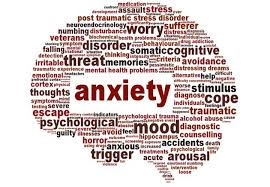Performance Anxiety
- Sydney Violin Studios

- Feb 4, 2019
- 2 min read
Today we discuss the pros and cons of performance anxiety that affects just about most musicians, and teach you how to recognise those symptoms.

Butterflies in the Stomach
We have all experienced butterflies in our tummies or some sort of tension before a big event, test or exam, and as musicians, we will have these same experiences at some point in our performance lives. Believe it or not, this is actually perfectly normal.
What is Performance Anxiety?
There are various symptoms including both bodily and mental symptoms such as:
muscle tension;
shaking of various parts of the body such as your hands or legs;
increased heart rate;
sweating;
hot or cold flushes;
nausea;
dry mouth;
'butterflies in the stomach';
the desire to go to the toilet frequently;
an adrenalin rush;
negative thoughts;
being distracted;
a feeling of impending doom;
memory blanks; and
a feeling of panic.
Most performers will encounter some of these symptoms, and the level of anxiety can vary depending on whether you are performing a solo, going for an exam, competing at competition, playing in front of your teacher when you haven't practiced, undertaking an audition, on opening night, when performing for a special occasion; or when there is a special someone in the audience. Most performers feel less anxious when they have performed something many times before or when they feel they have mastered the material.
The Pros of Anxiety
Anxiety ain't all that bad! It is a normal emotion which people experience in everyday situations. Anxiety is a positive where it can be managed and the performer uses it to energise their performance. Many people can turn their anxiety into excitement or an eagerness to perform, which lifts their overall performance to a level above what they have practiced or rehearsed. A little anxiety also helps you become alert and focused, which is important when you want to perform to an audience.
This is also supported by psychology research which suggests that a little anxiety increases a person's ability to perform simple tasks better and more quickly. If you reach the optimum level of anxiety, you can perform at your best, however going beyond this point, you'll find yourself becoming overwhelmed, resulting in mistakes. Everyone's optimum level of anxiety is different and the peak anxiety will occur at different times.
Monitoring Your Levels of Anxiety
If you have noticed that you are person who goes through anxiety often, it is a good idea to monitor your anxiety and how your body and mind respond to it. Keep a journal; write down and reflect on when you become anxious. Is it before or during a particular event? What was the event? What were you feeling or thinking? Were you feeling nervous? Did you have a little voice in your head causing you to doubt yourself? Lastly, write down how you responded to your anxiety. Did you take deep breaths? Drink some water? Listen to some music? Distract yourself?
Once you've begin to monitor your anxiety and how you respond to it, then you can develop strategies to deal with your anxiety and turn it into a positive experience from which your performance can thrive from.
In next week's article will discuss some mental strategies to help you overcome your anxiety.










Comments